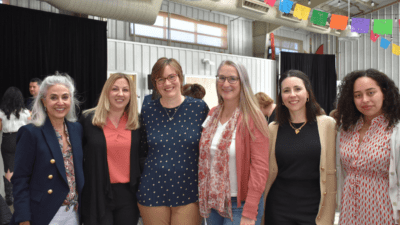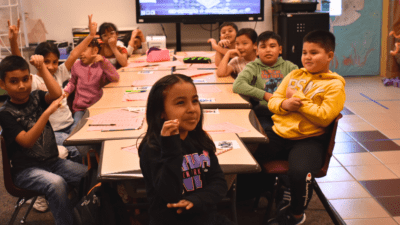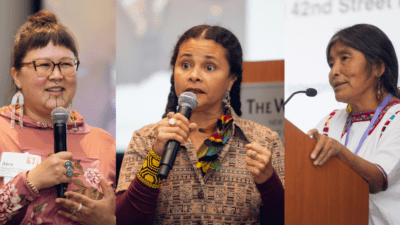WKKF’s Director of Communications, Kathy Reincke, recently spoke with Wilson Liévano, managing editor at the GroundTruth Project. They discuss Report for America, an initiative of the GroundTruth Project to address the local news crisis in the U.S.
Kathy: Tell us about Report for America and the types of stories being covered that reflect the voices of all people from communities across the country.
Wilson: Report for America is a national service program that places talented, emerging journalists into local newsrooms across the country to report on undercovered communities and topics. In recent decades, local newsrooms have been closed or their number of reporters have been drastically reduced. Residents deserve access to the critical information of what’s happening in their communities and the issues they care about. Since launching in 2017, our reporting corps members have produced tens of thousands of stories that have brought awareness and created change.
For example, corps members Michael Livingston at Interlochen Public Radio and Jennifer Brookland at Detroit Free Press have both been reporting on flaws with Michigan’s juvenile justice system. After months of reporting, Michigan’s Gov. Whitmer announced the creation of a Juvenile Justice Reform Task Force to investigate and reform the state’s juvenile justice system.
Or what might be unknown to many is that New Mexico has the most missing and murdered Indigenous women and girls in the country. In 2022, the Missing and Murdered Indigenous Women and Relatives Task Force – created by the state’s legislature in 2019 – made a list of recommendations to respond to the problem. Corps member Bella Davis, at New Mexico In Depth, followed up on the task force’s recommendations and found that little, if any, action was being taken by state officials and law enforcement.
Kathy: Why are local newsrooms struggling?
Wilson: According to a report by Northwestern’s Medill School of Journalism, since 2005, the U.S. has lost more than one-fourth of its newspapers and is on track to lose a third by 2025. The rise in social media and more consumers turning to major network news and national outlets has led to a decline in local readership. Authors of the report also attribute the growth in news deserts to rising political, economic and social divisions across the country.
While many local newsrooms are struggling to stay afloat, Report for America’s support is helping newsrooms report on the topics that matter most to the communities they serve – covering everything from children’s health to racial equity, education to climate justice and more. Since its founding, Report for America has placed more than 600 journalists in local newsrooms with more than 300 news outlets in most U.S. states and territories.
Kathy: What’s ahead for Report for America?
Wilson: Among the most requested beats by prospective host newsrooms to Report for America are those that involve covering traditionally underserved communities, especially communities of color. Even with 250 corps members in the field right now – more than half covering these communities – we nowhere meet the demand among local newsrooms. What’s next for Report for America is that we need more support to deploy hundreds more reporters.
At the same time, we continue to robustly recruit early-career journalists to cover these and other beats, including journalists from rural areas; journalists with special skills, such as fluency in Spanish and other languages; and journalists of color, who comprise 46% of our total corps.
What’s next for Report for America also includes expanding our training opportunities, to make good local journalists and their newsrooms great. We’re teaching local journalists how to cover these beats richly and deeply, and at the same time we’re training newsrooms how to effectively practice diversity, equity, inclusion and belonging. Our corps members participate in anti-bias training and are required to complete a service project in the community where they work, which often leads to a more authentic connection with residents. We also provide coaching for newsrooms on how to onboard corps members – often their first new hires in years. Report for America offers consistent development opportunities for journalists to sharpen their skills and networking opportunities such as our annual national gathering of corps members.
The next chapter of Report for America also involves expanding our efforts to make our host newsrooms more sustainable, by working with them more deeply on local fundraising strategies and tools. We’ll also be expanding our commitment to the creation and support nationwide of Community News Funds, foundation-supported collectives that provide money for local newsrooms.
Read more about Report for America’s work on language barriers in Latino communities.








Comments